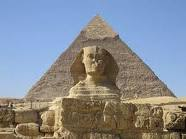
Last week in Cairo, a group of prominent twitter activists organized a Twitter Nadwa, Arabic for “seminar,” which focused on social justice and economic reform. At a packed theater in the alleyways of downtown Cairo, several hundred attendees bantered with a group of five well-known activists seated in the front of the room. The debate was quick and lively, largely because each person could speak for no more than 140 seconds at a time—a nod to Twitter’s 140 character limit. The level of energy and passion in the room, fed by the feeling that there is a real window of opportunity right now to shape Egypt’s political and economic future, was infectious.
In the six months since the ouster of former President Hosni Mubarak, the concept of “social justice” has emerged as a major rallying point for both liberals and Islamists. While there is no absolute consensus on the meaning of the term, it is generally seen to include an increase in the minimum wage, more government aid to the poor, and improvements in healthcare and public education. As opposed to divisive issues such as the writing of the constitution and timing of elections, there is no visible opposition to the idea of the government playing a major role in guaranteeing social justice. In fact, social justice was one of the three major demands—along with justice for those killed in the January revolution and reform of government institutions—headlining Friday’s major protest in Tahrir Square, which was tailored to appeal to as broad a segment of the population as possible.
The ongoing dialogue about social justice is intimately tied to debates about the role of government and economic reform in Egypt. While everyone at the nadwa agreed that social justice should be a national priority, sharp divisions emerged among the audience members about how to achieve it. A strong contingent of communists and socialists advocated for a “return to the basics” and declared that social justice would only be realized once Egyptians “end the capitalist plague that is destroying the country.” Several self-described free market advocates responded that Egypt’s economic system under Mubarak had no relation to true capitalism: “What we had in Egypt for the past 30 years,” one said, “was not capitalism. It was simply despotism.”
The communists and socialists garnered more support than the capitalists during the Twitter Nadwa, which is indicative of the overall mood in the country. While there is no major political bloc advocating for a truly communist system, there is a significant backlash against many basic aspects of free market capitalism. The memory of Mubarak’s crony capitalism, in which those with political connections enriched themselves while the rest of the society remained impoverished, is still fresh in the minds of many Egyptians. As a result, people see efforts to close the vast divide between the haves and the have-nots as directly tied to the revolution’s overall goal of reversing the Mubarak regime’s economic policies.
The question remains, however, about how exactly to turn these ideas of social justice into reality. Nearly all of the social justice initiatives posited at the Twitter Nadwa would require significant government expenditures and capacity to implement complex programs. The current transitional government, however, is in no position to undertake such tasks. There have been persistent rumors over the past few months about the country’s dwindling currency reserves. Furthermore, the transitional government, which has frequently responded to protesters’ demands with purely symbolic concessions, has not given any indication that it can to deliver social services any more efficiently than its Mubarak-led predecessor.
Perhaps the best summary of the basic incongruity between the desire for social justice and the harsh reality of the government’s inability to deliver services to the poor came from an audience member at the Twitter Nadwa who sought to find a middle ground between the capitalists and the communists. “The question of whether we should have a capitalist or a communist system here in Egypt is not as important,” he declared, “as this question: who will administer the system? If there is anything we have learned in the past 60 years, it is that no matter what ideology we follow, we are ultimately doomed to fail if we have bad leaders.”
Michael Kremer is a fellow at the Center for Arabic Study Abroad in Cairo, Egypt. He blogs about Egyptian politics, economics, and society at www.mkarabic.blogspot.com.


